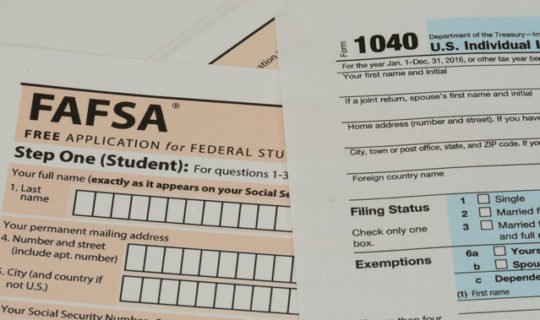Resource: Fast Track FAFSA Completion
Increasing FAFSA completion rates is a fundamental step in a state’s efforts to meet their postsecondary attainment goal. Students who complete the FAFSA are more likely to enroll in higher education, persist in their college coursework, and obtain a degree.
Despite this, over a third of high school seniors fail to complete the FAFSA each year—leaving an estimated $3.4 billion in financial aid on the table. And the students who stand to benefit most, including low-income and first-generation students, are the least likely to complete the form.
The FAFSA is notorious for its complexity, which often serves as a key barrier to completion. In a year of deep division, Congress found common ground and passed legislation to simplify the FAFSA form, reducing the number of questions and eliminating the burdensome verification process. States and communities must maximize this opportunity to increase FAFSA completion rates.
Informed by an analysis of state and local policies and practices from across the country, Fast Track FAFSA Completion provides clear steps that all states and communities can take to ensure that the FAFSA is a springboard, not a barrier, to postsecondary access and success.
The report specifically recommends that states:
- Set a FAFSA completion goal tied to existing initiatives and priorities to create momentum.
- Build shared ownership across K-12 and higher education.
- Create incentives for local and regional implementation of FAFSA completion strategies.
- Use data to target supports and transparently report progress.
- Establish partnerships to provide on-the-ground training and support.
- Spread awareness about the importance of FAFSA completion.
Education Strategy Group and the partners that make up the Level Up coalition stand ready to support states and communities in developing and executing a strategy to fast track FAFSA completion—and help as many students as possible realize that the doors of higher education are open to them.
For more information or to request assistance, please contact Lauren Norton.







